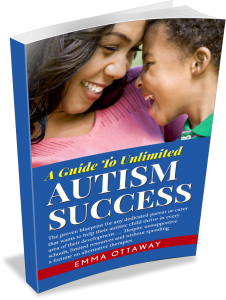“Look at your book”
“Look at Mummy.”
“Show me good looking.”
“You’re not looking.”
“You need to look.”
These are all things I must have heard parents and carers say to their children with ASD a million times.
It’s quite commonly discussed that children with autism “don’t make eye contact with others.”
And it’s something I have personally really struggled with at times when it comes to teaching children on the spectrum. Because if they’re not looking at you or at what you are showing them, it makes it near impossible to complete the task successfully.
Often I’ve seen children with ASD look away as they’ve been distracted. Sometimes because what’s being shown to them is too overwhelming or “busy”. Or maybe because they’re avoiding the task altogether.
It’s all a bit of a guessing game.
Nevertheless, all of which can be really challenging to deal with when you’re trying to work with your child.
But, I recently read an article talking specifically about children with autism and making social eye contact.
The article went on to explain that all too often we misjudge children with autism and the reasons why they do or don’t make eye contact.
A new study has taken place on this topic with a mix of 86 neuro-typical and autistic two-year-olds and what the researchers found was that the children on the spectrum did not actually look away from the eyes more. It was more that when they were using “social meaningful” eye contact, they spent less time gazing than the neuro-typical two-year-olds did.
So what does this mean?
Well, it clearly shows us that making eye contact is not a skill deficit at all, it’s just that the children with ASD didn’t understand the social significance of prolonged eye contact.
I thought this was a really interesting find. And it goes to show that once again there is still so much left to discover when it comes to autism.
In the meantime, it’s worth thinking about spending less time focusing on “good looking” and more time on things like social skills, social groups and teaching through play.
In my book “A Guide To Unlimited Autism Success” I talk more about how to help children learn essential social skills through play.
Speak with you soon until then,
Live every moment, Love beyond words and make a difference today
Emma Ottaway
The Ambitious Autism Ambassador

